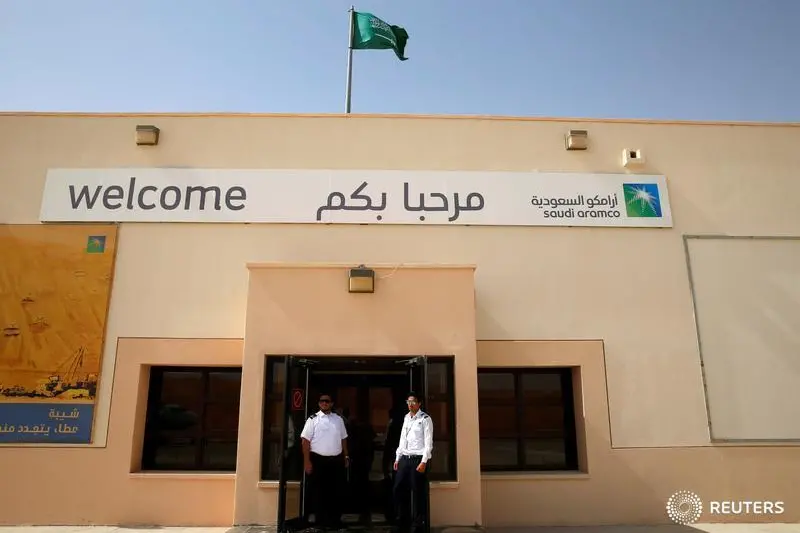PHOTO
DUBAI- National oil giant Saudi Aramco could borrow as much as $50 billion from international banks to fund its acquisition of a stake in Saudi Arabian Basic Industries Corp, banking sources familiar with the matter said.
Over the past several weeks, bankers have met with Aramco to present proposals for financing the purchase of a major stake in the world's fourth-biggest petrochemicals producer, which has a stock market value of about $100 billion.
The deal is expected to involve the purchase of all or nearly all of the 70 percent stake in SABIC held by the Public Investment Fund (PIF), the kingdom's top sovereign wealth fund. That implies a deal value of roughly $70 billion, though talks on the acquisition price are still at an early stage.
The financing package is expected to take shape later this year or, more probably, in early 2019, bankers involved in the meetings said. Although Aramco is working with JP Morgan and Morgan Stanley on the acquisition, it has not yet mandated banks to arrange debt issuance to fund the deal.
Options that have been discussed include bond issues by Aramco and some form of leveraged buyout in which SABIC itself would take on debt.
But the most likely outcome now is a deal that would see Aramco tap its cash holdings for part of the deal, probably around $20 billion.
The remaining $50 billion would be raised through a combination of a large, long-term syndicated loan and short-term, bridge loans that would be replaced after about 12 to 18 months with bond issues, several sources said, declining to be named because of commercial sensitivities.
Aramco didn't immediately respond to a request for comment.
BONDS
Many bankers expect bonds eventually to become part of the SABIC financing; as part of economic reforms, Saudi Arabia is keen to develop its bond market and expand the international investor base for its debt.
But an international bond sale by Aramco would almost certainly require the company to obtain a credit rating and disclose financial information in a prospectus.
Aramco, a key instrument of Saudi state policy, has so far been reluctant to disclose many details of its finances. Concern about disclosure requirements was one reason that Aramco shelved a plan for a public offer of its shares earlier this year, according to sources familiar with the decision.
Bank loans do not have such disclosure requirements and would therefore be simpler and easier to arrange.
A leveraged buyout in which SABIC took on debt might not make financial sense because SABIC, only partly owned by the government, does not have quite as strong a credit profile as Aramco and could therefore have to pay more to borrow, several bankers said.
A $50 billion loan package might not prove very profitable for banks involved. Aramco could seek to price its debt on a par with the government, demanding ultra-thin margins.
Nevertheless, many banks would join the loan in the hope of being rewarded by Aramco with future mandates for capital markets transactions and other banking business such as foreign exchange and investment services.
"Aramco’s strategic stake in SABIC will transform the entity into a fully vertically integrated oil company, upholding the kingdom’s status as the capital of energy to the world. As such, banks’ appetite for funding a well-regarded company such as Aramco will remain robust for the foreseeable future," said Elyas Algaseer, co-head for the Middle East and North Africa at Japan’s MUFG.
Last month, the PIF raised a debut $11 billion international loan at the same pricing as Saudi Arabia’s sovereign debt; the deal was seen by lenders as an opportunity to create or strengthen ties to the kingdom.
"In the case of the PIF loan, they said clearly that banks that participate will become part of their core group of banks in the future," said a source at one of the banks that took part.
(Additional reporting by Tom Arnold; Editing by Andrew Torchia) ((Davide.Barbuscia@thomsonreuters.com; +971522604297; Reuters Messaging: davide.barbuscia.reuters.com@reuters.net))





















